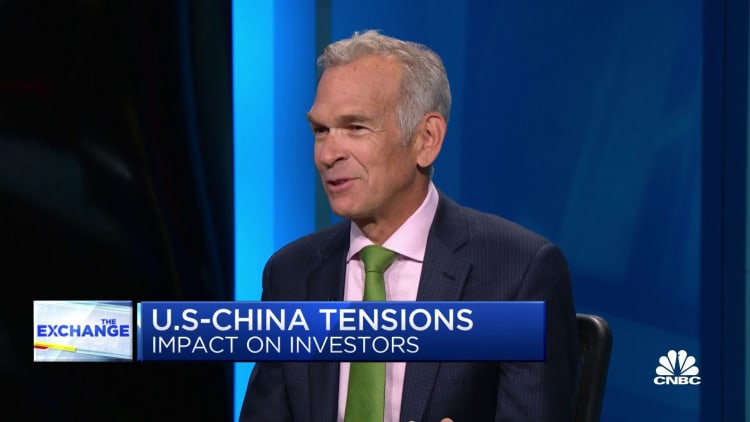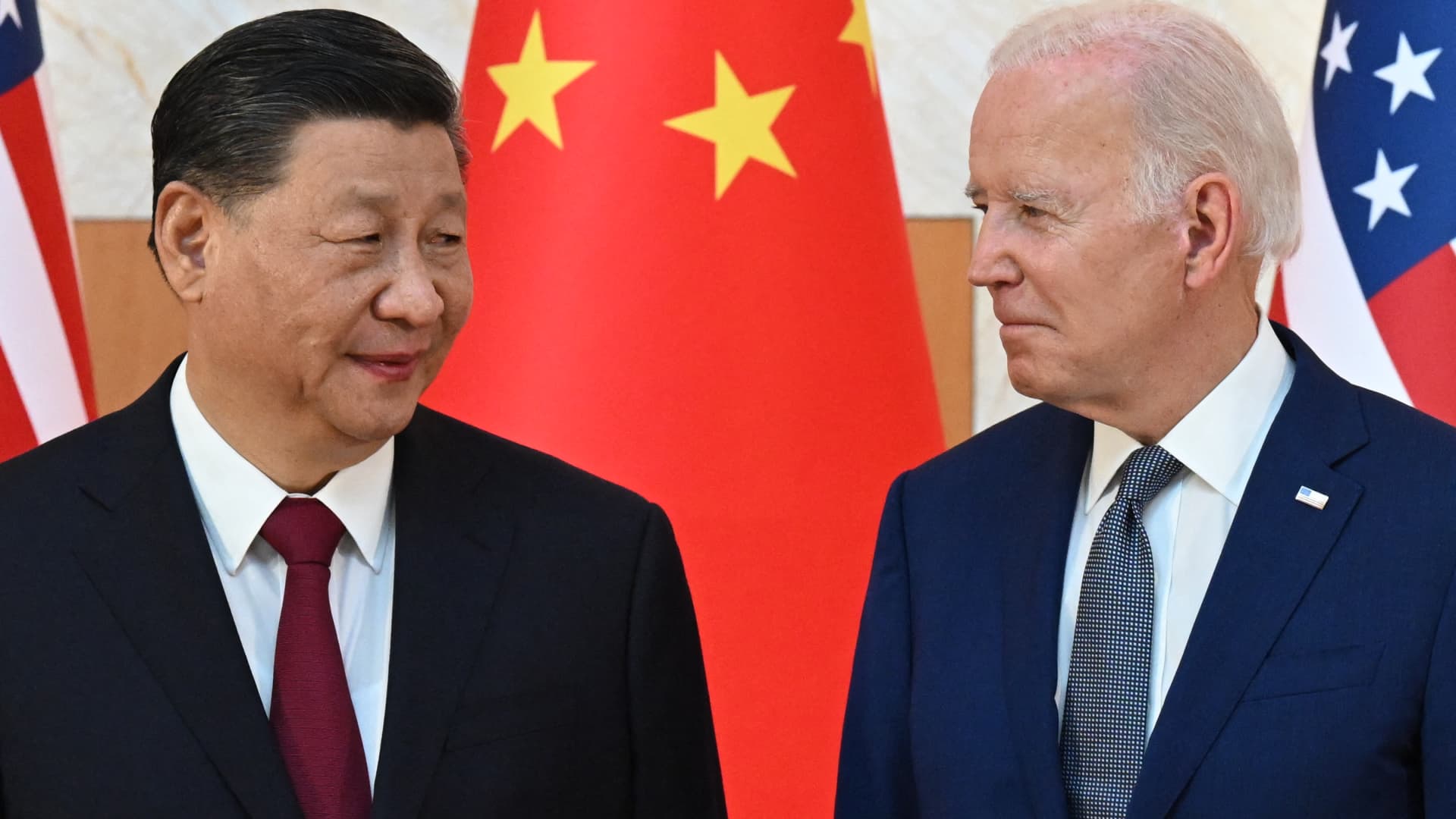U.S. President Joe Biden and China’s President Xi Jinping shake hands as they meet on the sidelines of the G20 Summit in Nusa Dua on the Indonesian resort island of Bali on November 14, 2022.
Saul Loeb | Afp | Getty Images
SINGAPORE — The U.S. and China have been engaged in a political showdown for years, but leaders from other countries believe they shouldn’t be forced to choose between the two superpowers, according to discussions at the Milken Summit.
Singapore’s Deputy Prime Minister Lawrence Wong said, “All the countries in Southeast Asia, including Singapore, maintain friendly relationships with both China and the US. We want to preserve those connections.”
Wong added, “We reject the dominance of any single power and avoid exclusive commitments with any one party. We strive to be friends with everyone.”
Malaysia’s Prime Minister Anwar Ibrahim expressed similar sentiments, stating, “The idea that you have to align with either China or the United States is false. I want Malaysia to have close ties with both the United States and China. As ASEAN, we play a role in engaging with both countries and appealing to them to reduce tensions.”
The relationship between the U.S. and China has been fraught with tension, encompassing disputes in trade, technology, and security policies.
There were hopes of improving U.S.-China relations when President Joe Biden and Chinese President Xi Jinping met at the G20 leaders’ summit in Bali, Indonesia in November last year.
During the summit, they discussed the importance of collaboration in addressing global challenges and agreed to foster better communication.
Reviving Engagement
Recent developments suggest that conversations between the two countries may be getting back on track. It was announced that U.S. Secretary of State Antony Blinken may host China’s Foreign Minister Wang Yi in the U.S. before the end of the year.
Paul Haenle, Director of the Carnegie Endowment for International Peace, highlighted the importance of high-level dialogue in managing strategic competition and preventing escalation into conflict.

The Biden administration has shown increasing interest in the Asia-Pacific region this year. President Biden hosted Indian Prime Minister Narendra Modi at the White House, resulting in several defense and technology agreements. They also had a bilateral meeting during the G20 leaders’ summit in Delhi, India, where they pledged to deepen the partnership between the U.S. and India.
As the U.S. and China compete for influence in Southeast Asia, the Biden administration has made an effort to engage and benefit the region. China, on the other hand, has taken aggressive actions to ensure countries in the region do not align with the U.S. and are reconsidering the risks and opportunities associated with their relationship with China.
Denial of responsibility! Vigour Times is an automatic aggregator of Global media. In each content, the hyperlink to the primary source is specified. All trademarks belong to their rightful owners, and all materials to their authors. For any complaint, please reach us at – [email protected]. We will take necessary action within 24 hours.


